If you are a property owner looking for a plumber, you might be curious about what skills and qualifications a plumber requires to work on your property. Or, you may want to know the services or duties that plumbers have.
Read this blog to learn what a plumber is and their types, what does a plumber do, and the skills they have. We’ll also take you through the training and licensing that Australian plumbers require.
What Is a Plumber?
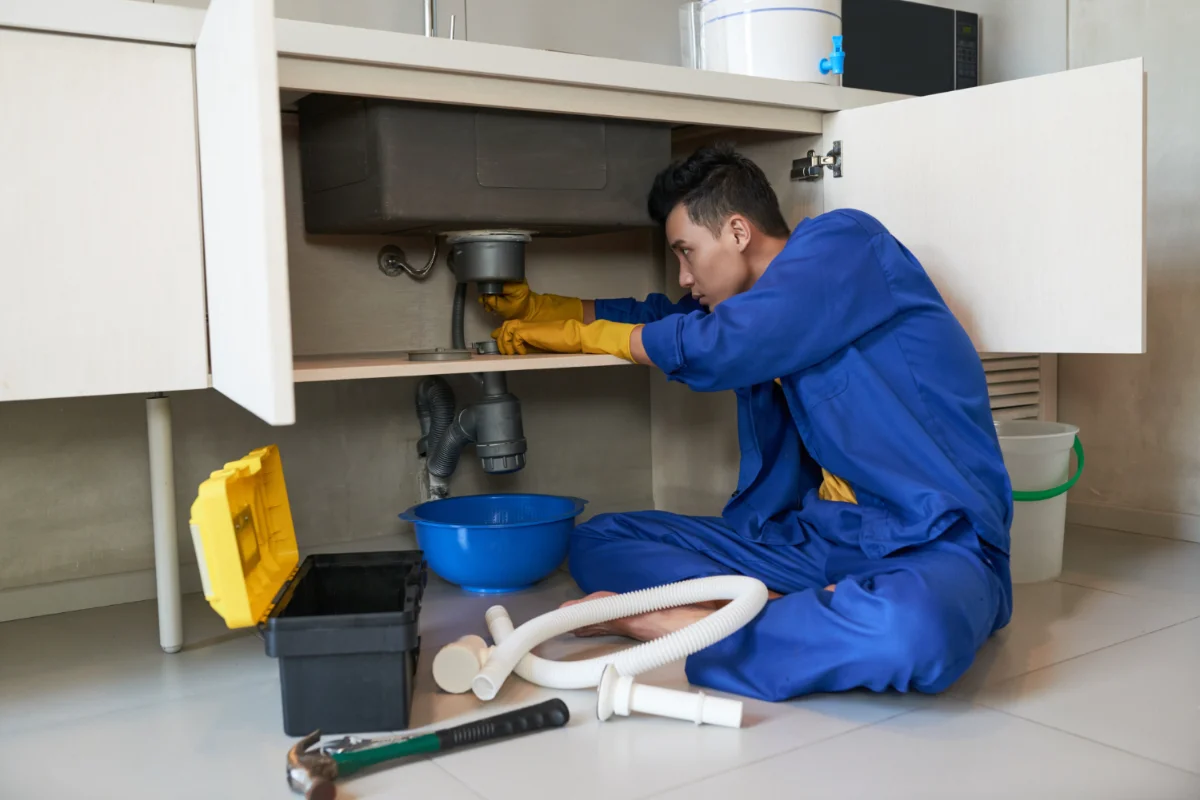
Plumbers are tradespeople who specialize in the installation, inspection, and repair of piping systems. So what do plumbers do? You might think they only deal with water pipes. But they also deal with other piper systems like gas or gutter pipes. Basically, they deal with plumbing and all the types of fixtures related to it.
What Are the Types of Plumbers?

You can categorize the types of plumbers based on several factors. This includes where they work, their services, and their specialization. So, a plumber will be multiple of the types explored below.
1. Residential Plumber
Residential plumbers service homes. They are the ones you call on when your kitchen sink leaks. You can expect a residential plumber to be well-versed in all home plumbing, fixtures, and common issues homeowners have with their plumbing.
2. Commercial Plumber
Commercial plumbers service piping systems for commercial places. A residential plumber could deal with the leaking tap in your office bathroom. However, if you want your whole system inspected, you should get someone with experience dealing with businesses: A commercial plumber.
3. Construction Plumber

Construction plumbers offer services such as laying water supply and waste disposal systems in a building under construction. In fact, the first answer to what do plumbers do is – Pipe-laying in the construction of a new property.
4. Repair Plumber

When your piping system malfunctions, you need a repair plumber. They offer services related to repair, inspection, and maintenance. As such, they have the tools and parts for repair jobs.
5. Gasfitting Plumber
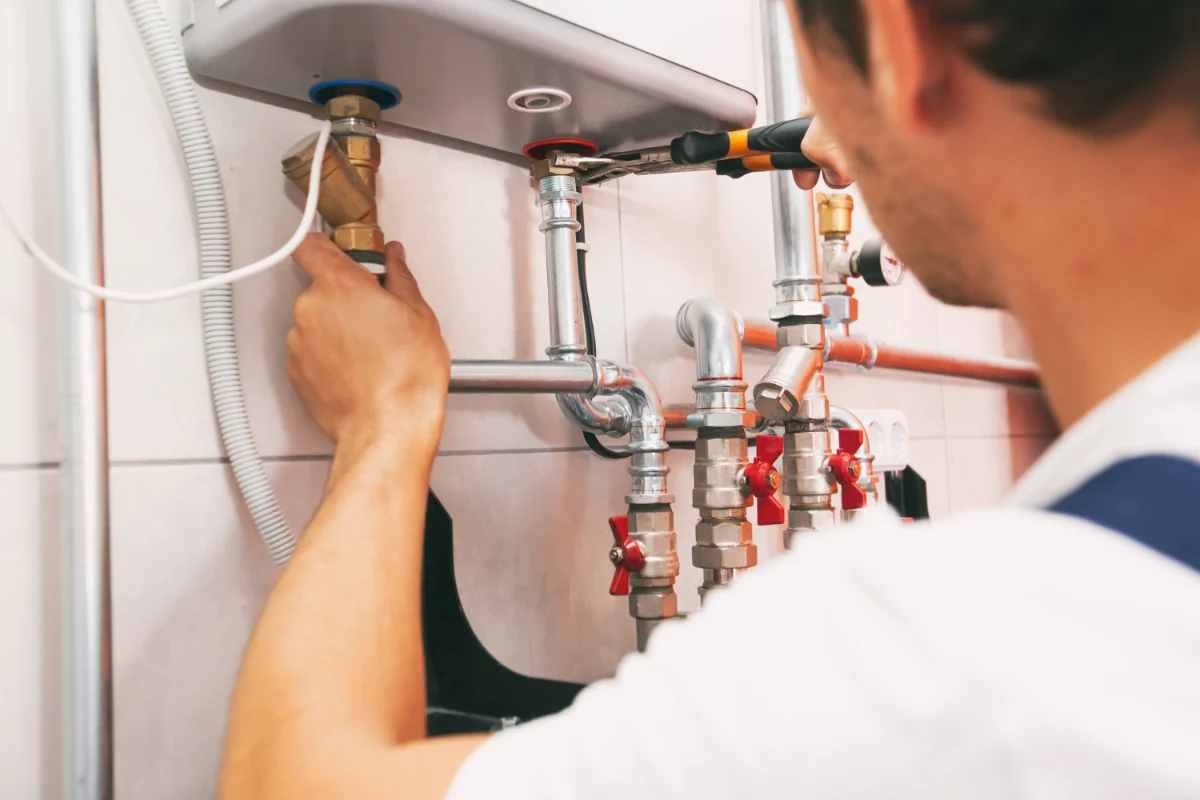
Gasfitting is a specialization in plumbing. This type of plumber installs, repairs, maintains, and inspects gas piping. Therefore, if you need to repair a gas-powered hot water system, you should look for a plumber who has gasfitting expertise. In fact, only a plumber with a gas fitting license can do this kind of plumbing in Australia. Additionally, their gas plumbing must come with a gas compliance certificate.
6. Sanitation Plumber
A sanitation plumber specializes in sanitary systems. That means they work on waste disposal systems like toilets, drains, and baths. For instance, you should call upon a sanitation plumber if you have a blockage in your toilet.
7. Oxygen Plumber
If your property needs oxygen pipes, you should consider an oxygen plumber. This type of plumber has the tools, knowledge, and certification to install, maintain, and repair oxygen pipes.
What Are the Duties of a Plumber?
1. Installation
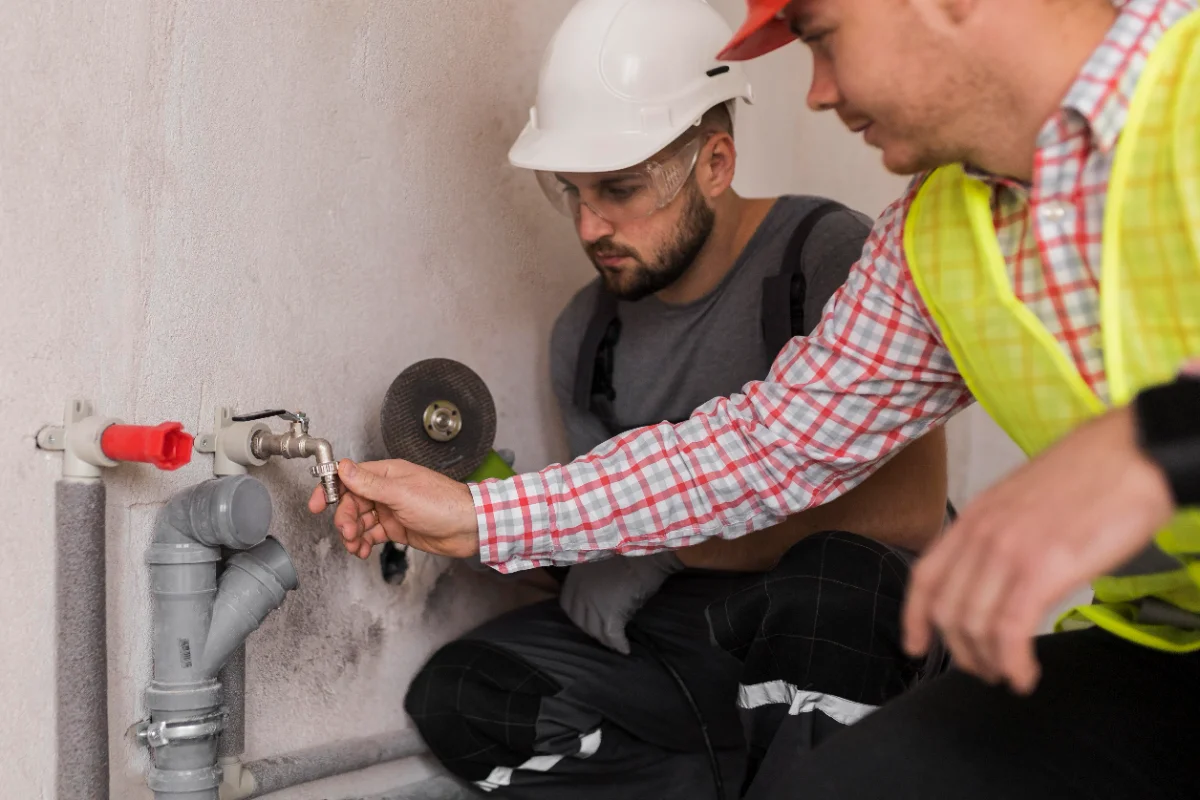
Plumbers install piping systems. These installations include pipes, fixtures such as sinks, and domestic appliances. These piping systems transport a variety of substances, such as waste, water, gas, and oxygen.
2. Repair
Plumbers repair piping systems. What can plumbers fix? They can repair blockages, broken or malfunctioning fixtures such as toilers, and leaking or burst pipes.
3. Inspection
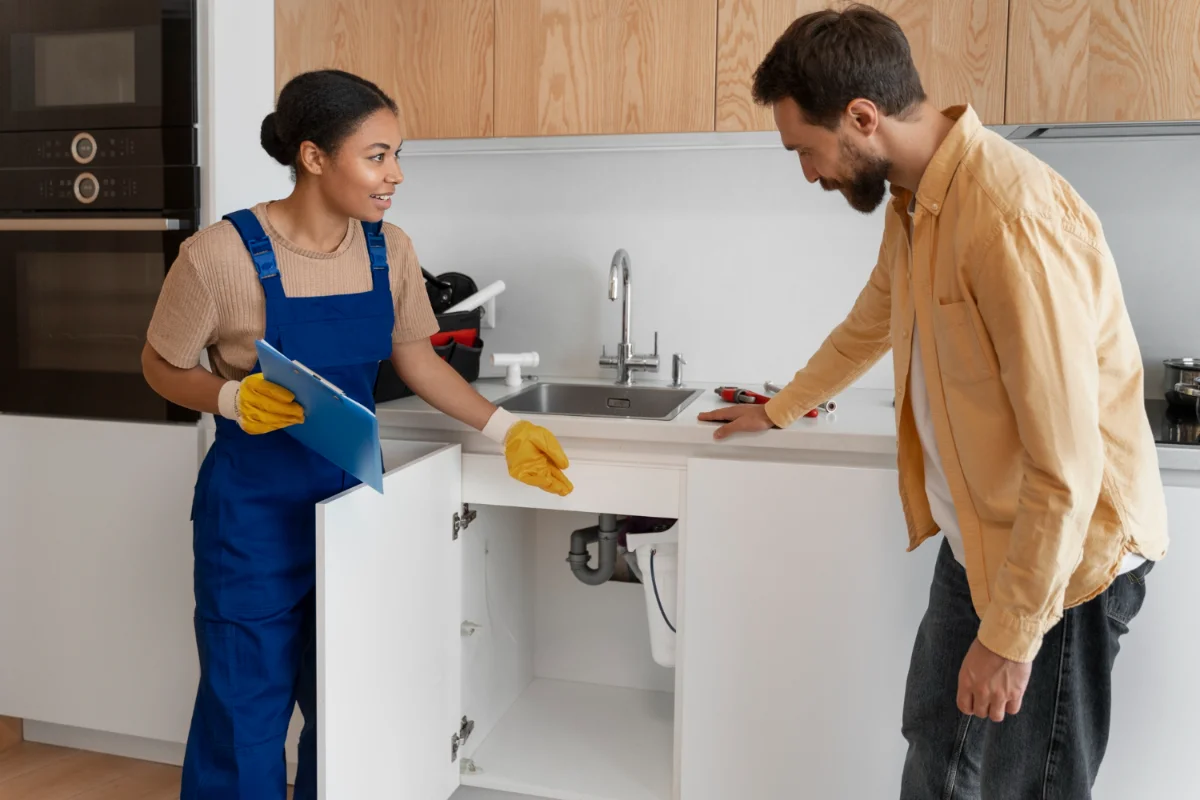
Plumbers inspect your property’s pipes. With their tools and knowledge, they can check for damage in your piping system and make sure your systems are working efficiently.
What Are the Must-Have Skills for Plumbers?
1. Technical Knowledge
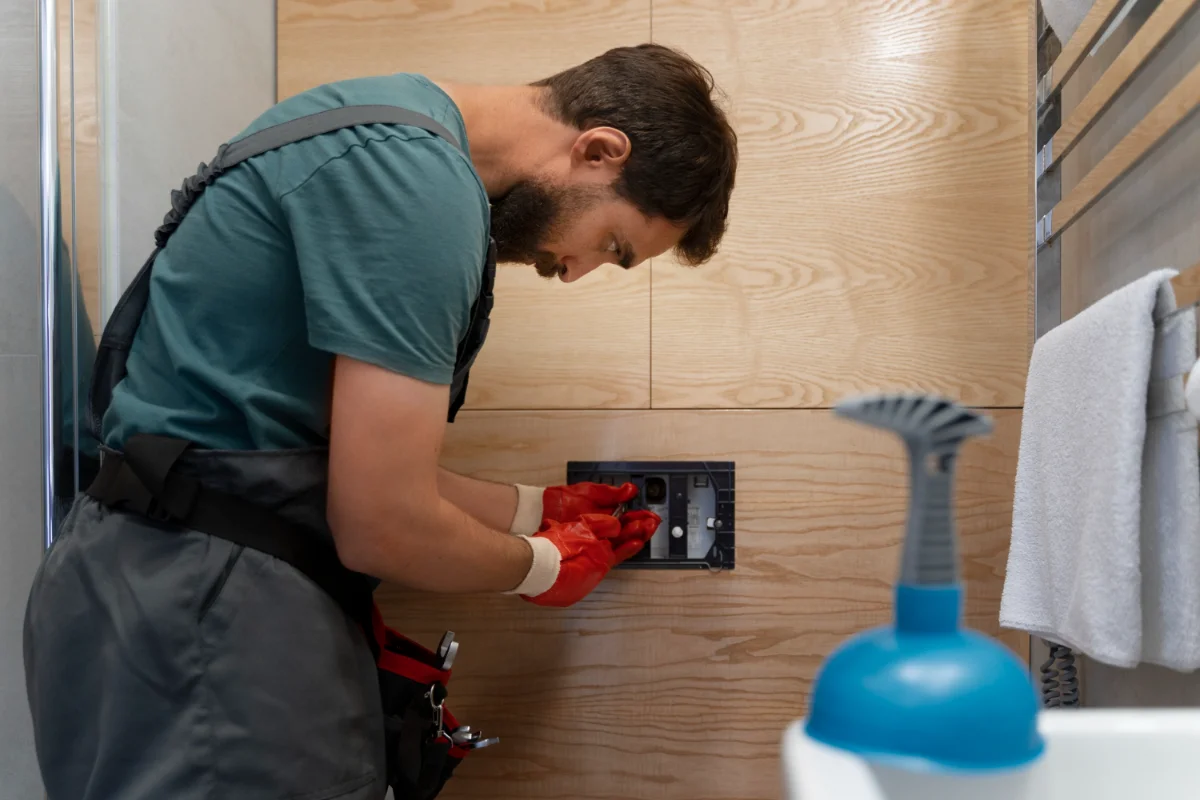
Plumbers need to know how to install, repair, and maintain piping systems. In fact, in Australia, this is a licensed trade. With years of classes and apprenticeship, a plumber can be trusted to work on your piping.
2. Interpretation
Plumbers must know how to interpret building codes and regulations. This crucial skill allows them to install, repair, and inspect plumbing correctly. When your plumber has this skill, you can trust that any work they do on your property is up to code.
3. Communication
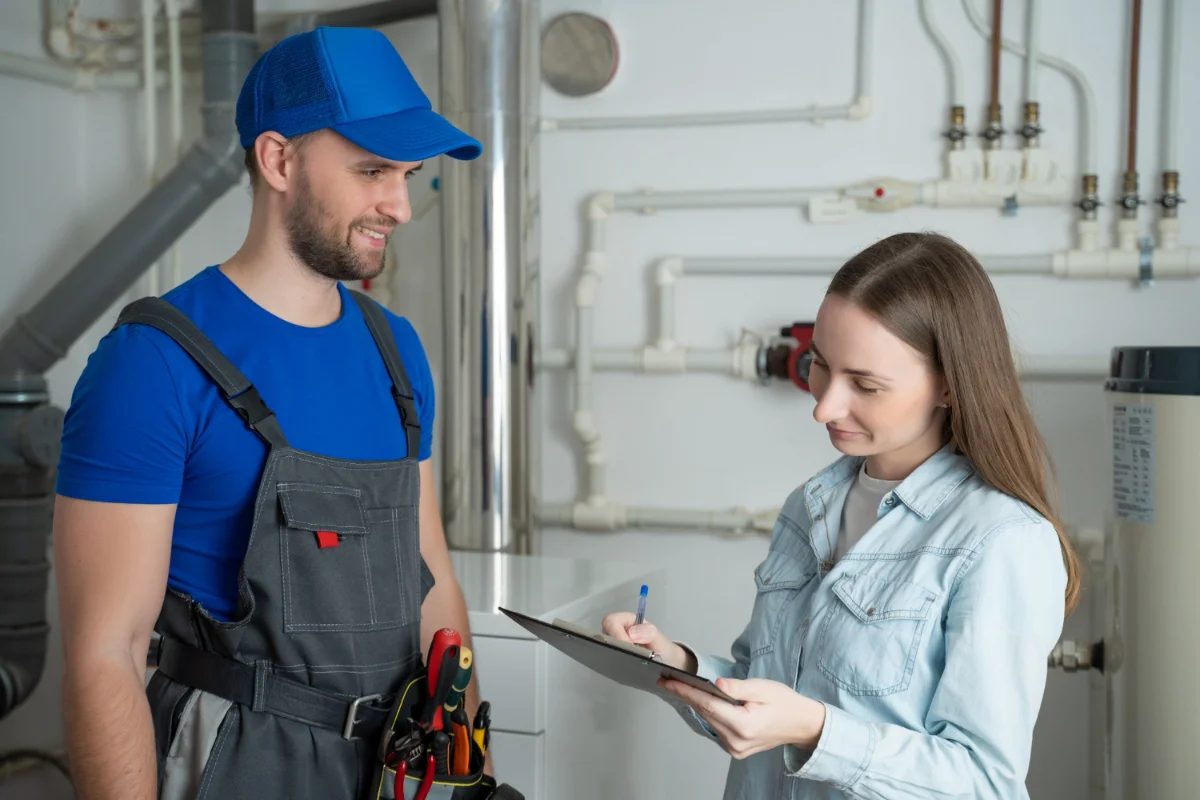
Plumbing is a very technical profession, so plumbers need to be able to translate regulations, building codes, and even blueprints to their clients. That is why a plumber must have good communication skills so that they can explain complex things to their clients more efficiently.
4. Creative Problem-Solving
While every property must have plumbing that is up to code, that leaves a lot of options for property owners. With so many options in piping layouts, heating systems, types of materials, and brands, many different issues can arise in your plumbing. And so, a plumber needs to be creative in finding solutions to every plumbing problem. For instance, if you have a leaking bathtub but the model and its parts are no longer manufactured, a plumber needs to find a creative way to fix this issue.
What Are the Qualifications of a Plumber in Australia?
Plumbers in Australia must have Certificates III and IV in plumbing. Moreover, they need at least four years of apprenticeship before they can do plumbing on their own as a journeyman plumber.
However, some specializations require further training and certification. These specializations include gasfitting, pipe relining, air conditioning, and fire and mechanical services in plumbing.
Conclusion
Conclusively, plumbers install, repair, and inspect your property’s piping systems in the residential and commercial sectors. To offer excellent service, a plumber needs to have technical plumbing knowledge, understand building codes and regulations, communicate well with clients, and be creative problem-solvers. In Australia, plumbers must be highly trained and certified and undergo years of apprenticeship before working as journeymen or master plumbers.
Frequently Asked Questions
What tools do plumbers use?
A plumber may use a pipe wrench, a hacksaw, thread sealing tape, and a torch, among many other tools.
Why is it called plumbing?
The plumbing systems we commonly use are based on the Roman Empire’s plumbing, which included underground systems lined with lead. In Latin, lead is called ‘plumus’.




